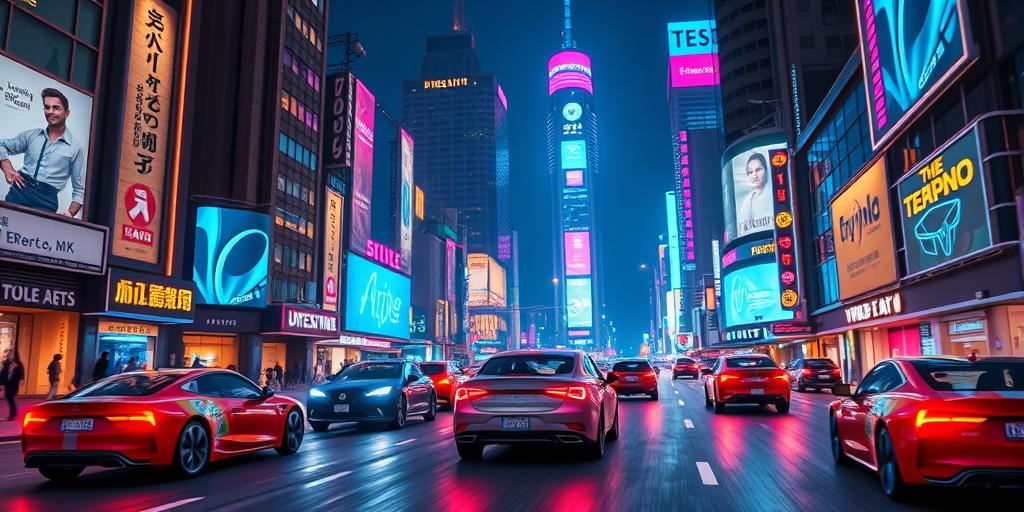Hold onto your hats, folks, because the future is closer than you think! Forget flying cars – we're on the cusp of an AI gold rush, and 2025 is shaping up to be the year autonomous systems take over everything. From self-driving vehicles navigating our streets to AI-powered robots revolutionizing our workplaces, the advancements in artificial intelligence are nothing short of breathtaking. Prepare to witness a technological tsunami that will reshape industries, redefine jobs, and fundamentally alter the way we live. Are you ready to ride the wave? Let's dive in!
The Rise of the Machines: Autonomous Systems in 2025
The year is 2025. Imagine a world where your morning commute involves a self-driving car whisking you to work while you catch up on emails. Robots are assisting surgeons in performing complex procedures, providing unprecedented levels of precision and reducing human error. Autonomous delivery drones are zipping packages across cities, ensuring lightning-fast delivery times. This isn't science fiction; it's the rapidly approaching reality of autonomous systems. We're seeing the convergence of several powerful technologies, including advanced AI algorithms, sensor fusion, and improved machine learning models, which are creating a perfect storm for autonomous innovation. This is particularly exciting in areas like logistics where autonomous trucks could revolutionize the supply chain and manufacturing, with robots performing tasks more efficiently and cost-effectively than humans.
Self-Driving Cars: More Than Just a Gimmick
Self-driving cars are no longer a futuristic fantasy. Major players are racing to perfect autonomous driving technology, and 2025 is set to be a pivotal year. The improvements we are seeing are astounding: better sensor technology, improved machine-learning algorithms, and enhanced safety protocols are driving the development of more advanced and reliable autonomous vehicles. We are talking not just about basic self-parking features, but about fully autonomous vehicles capable of navigating complex traffic situations with minimal (if any) human intervention. This has huge implications for areas like transportation, reducing traffic congestion, accidents and pollution, but also for logistics, with autonomous trucking offering a more efficient and affordable solution. The AI-powered improvements will also impact car insurance, paving the way for usage-based car insurance rather than traditional models. This will further fuel the adoption of these incredible technological advances.
Autonomous Robots: Transforming Industries
Autonomous robots are poised to revolutionize various industries. In manufacturing, robots are already handling repetitive tasks, but 2025 will see a significant expansion of their capabilities. We'll see robots working alongside humans, handling more complex tasks and collaborating seamlessly to boost productivity and efficiency. Furthermore, AI is impacting the maintenance and repair of these robots, using predictive analysis to schedule maintenance more effectively and predict potential equipment failures, reducing downtime and maximizing operational efficiency. In the healthcare sector, autonomous robots are assisting surgeons, performing precise and delicate operations, and providing rehabilitation support. This allows for better outcomes, shorter recovery periods and reduced workloads for busy medical personnel. It also allows for remote healthcare provision to remote and underserved communities, drastically impacting accessibility.
The Economic Impact of Autonomous Everything
The widespread adoption of autonomous systems will have a profound economic impact. While there are legitimate concerns about job displacement, the potential for economic growth is enormous. Autonomous systems will create new industries, new jobs, and new opportunities. The development, implementation, and maintenance of these systems will create many high-skilled jobs. Businesses will need skilled engineers, software developers, data scientists, and technicians to oversee the development, implementation, and maintenance of these systems. It will also create a greater demand for skilled professionals in related fields such as cybersecurity to protect against cyberattacks and data breaches, and project managers to implement and coordinate the different stages of development. As robots and AI handle more repetitive or dangerous tasks, businesses can reallocate human capital to focus on more complex jobs and strategic initiatives.
Job Creation and Reskilling
While some jobs will be automated, the shift toward autonomous systems will simultaneously create many new jobs. We need people to design, build, maintain, and regulate these systems. This transition necessitates reskilling and upskilling initiatives to equip workers with the necessary skills to thrive in this evolving job market. Governments and educational institutions will need to invest in training programs to prepare the workforce for this technological transformation. This requires a collaborative effort between government, industry and education, to ensure future generations are equipped with the relevant skills to meet the demands of this changing workforce.
Preparing for the AI Gold Rush
The AI gold rush is upon us. 2025 is the year to prepare for this technological transformation. Whether you're a business owner, a worker, or simply a curious observer, it's crucial to understand the implications of autonomous systems and how they will affect your life and work. Staying informed about these technological advances, understanding the evolving employment landscape and investing in reskilling initiatives are essential steps to successfully navigating this exciting new era.
Embrace the change, adapt, and prepare to be amazed by the incredible possibilities that autonomous systems will unlock. The future is here, and it's autonomous!
Ready to explore the exciting world of AI and autonomous systems? Click here to discover more about how this technology is transforming the future!




